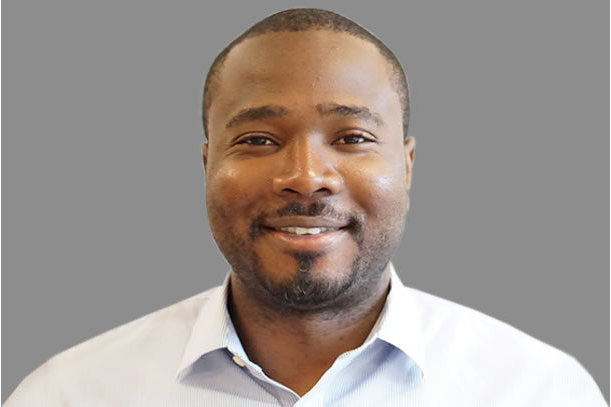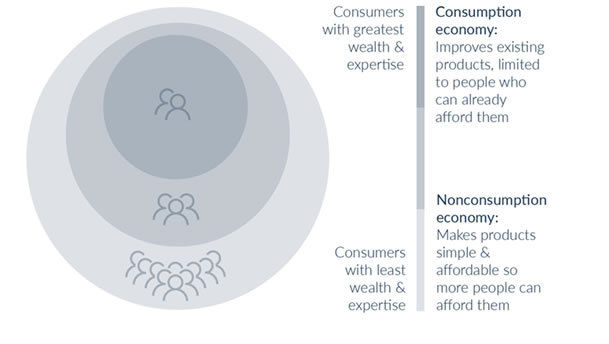The process of market creation demystified

Feature Highlight
Distribution, it turns out, is the unsung hero of market creation. It is what makes discovery profitable and democratisation possible.
Most innovations target the consumption economy – a seemingly safe place to invest as here, the market is already created, and people and organisations are already consumers. The types of innovations that target the consumption economy are called sustaining innovations. They make good products better. But before organisations can invest in sustaining innovations, they must first create the market. This is where market-creating innovations play a significant role.
Market-creating innovations transform complicated and expensive products into simple and affordable ones, making them accessible to a whole new set of people called nonconsumers.
The creation of a market is rarely foreseen but, like all good ideas, it is taken for granted after it appears, and, when fully formed, seems impossible to live without. For example, today, imagining an Africa where the average person does not have access to a mobile phone is difficult. The creation of this market may seem like a fluke, but thankfully there is a predictable, albeit difficult, path to market creation and thus, to ample job creation and prosperity.
First, in the process of market creation, a discovery must occur. Discoveries happen through experimentation, failure, learning, and ultimately – with enough perseverance – success. Most new discoveries are built on prior advances in human knowledge and understanding of how the world works. Discoveries can be an invention or technology, a new business model, a new process, or a new product. Discoveries typically take access to a product or service from zero to one, or a few. They make a product or service available to few people who have access to money, skill, or the discoverer. Those with access to discoveries are typically the wealthiest and most connected in society.
For example, in the 1990s, there were fewer than ten million mobile phones in Africa and only the wealthy had access.
But a discovery by itself isn’t enough to change the world. At best, it benefits a few people close enough to the discovery or those wealthy and networked enough to access the discovery. We remember discoveries because they – after the process of market creation occurs – create a paradigm shift in how many people ultimately experience the world. But that’s only possible because of the second phase of market creation.
Second, a distribution mechanism must be developed to enable widespread adoption of a discovery. Distribution takes access from one to many. The following activities typically occur in the distribution phase of market creation: mass production, mass marketing, management, mass financing or credit availability, mass distribution and logistics, mass consumption, and mass regulations. It is in the distribution phase that standardisation occurs. For this phase to be successful, the aforementioned activities must happen concurrently – or at least before funding runs out. As a result, many discoveries never get to the masses. This is the fundamental problem with innovation activities in many poor countries.
In the 2000’s the rapid development of the mobile telecommunications sector across Africa began to occur. In two short decades, access has jumped from barely nothing to almost one billion subscriptions. For that to occur, entrepreneurs such as Mo Ibrahim and Strive Masiyiwa and companies such as MTN and Safaricom had to invest in the distribution phase of market creation.
In Nigeria alone, investors have poured in more than $75 billion to build out the distribution component – mass production, marketing, advertising, financing, training, consumption, regulation, maintenance, etc. – of this market. This level of investment in distribution, over time, is what creates the infrastructure of society. The third phase of market creation is democratisation.
Democratisation happens when an innovation is deemed too important or critical that everyone should have access to it. Democratisation efforts are typically heralded and led by governments, international organisations, and nonprofits. In democratisation, the hope is to take access from many to all. Many poor regions in the world, unfortunately, find themselves in the midst of many democratisation efforts – universal healthcare, universal education, financial services for all, rural electrification initiatives, and so on. Yet, as important as democratisation is, it is impossible to achieve if the first two phases do not occur.
Distribution, it turns out, is the unsung hero of market creation. It is what makes discovery profitable and democratisation possible. Although everyone celebrates discovery, and we all stand behind democratisation initiatives as we seek to live in a more just and equitable world, without distribution, discoveries languish, and democratisation programmes never succeed.
Efosa Ojomo is a senior research fellow at the Clayton Christensen Institute for Disruptive Innovation, and co-author of The Prosperity Paradox: How Innovation Can Lift Nations Out of Poverty. Efosa researches, writes, and speaks about ways in which innovation can transform organizations and create inclusive prosperity for many in emerging markets.
Other Features
-
Africa’s crypto investment market: where growth may emerge next
Africa’s crypto investment market: where the next growth coould explode.
-
Lessons from the 2025 Goalkeepers Report: What kind of innovation ...
The 2025 report issues a clear call to action for policymakers and engaged citizens.
-
Profit: The most powerful engine for scaling impact, dignity, and ...
The most prosperous countries in the world are not those with the most aid programmes. They are those with the most ...
-
Expect turbulent asset markets in 2026
The negative impact of Trump’s tariff and immigration policies will be felt more acutely in 2026.
-
The scars of partition
Contrary to his rosy assurances, partitions often result in tragedy, as borders drawn by cartographers rarely align ...
-
Best site to sell Bitcoin in Nigeria (Fast BTC to Naira in 2026)
Apexpay stands out because it focuses on what Nigerian users actually want: speed, good rates, and simplicity.
-
The quiet influence of securitisation in financing Africa's energy ...
The scale of Africa’s energy transition demands financial solutions that are modern, secure, and scalable.
-
Lean carbon, just power
Why a small, temporary rise in African carbon emissions is justified to reach the continent’s urgent ...
-
Utilising the FTSA to unlock value in Nigeria’s gas production
Given the FG’s recent investment drive to fully monetise the country’s gas reserves, now is an opportune ...
Most Popular News
- Pan-African nonprofit appoints Newman as Advisory and Executive Boards Chair
- NDIC pledges support towards financial system stability
- Artificial intelligence can help to reduce youth unemployment in Africa – ...
- Abebe Aemro Selassie to retire as Director of African Department at IMF
- Dollar slumps as Fed independence comes under fire
- UN adopts new consumer product safety principles













